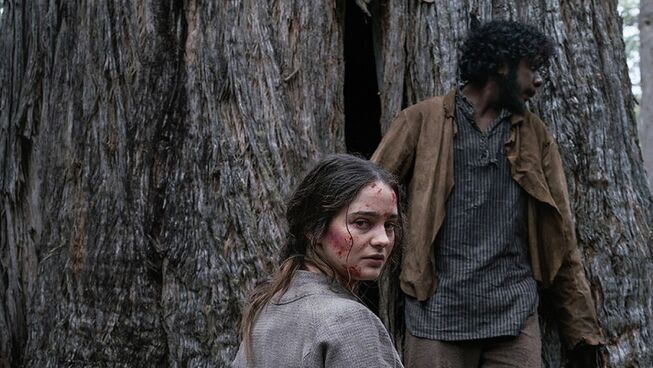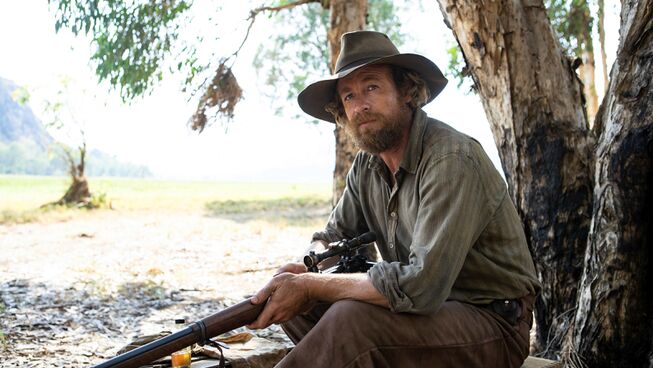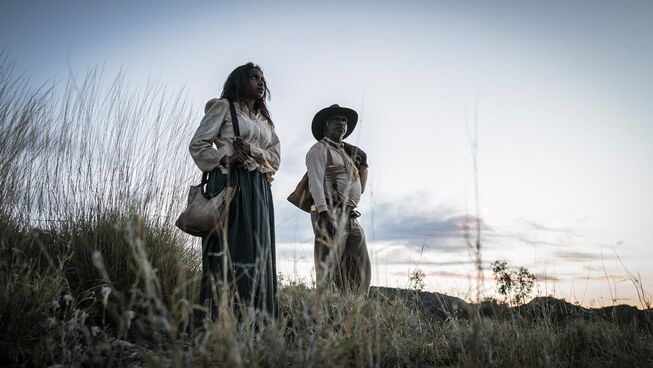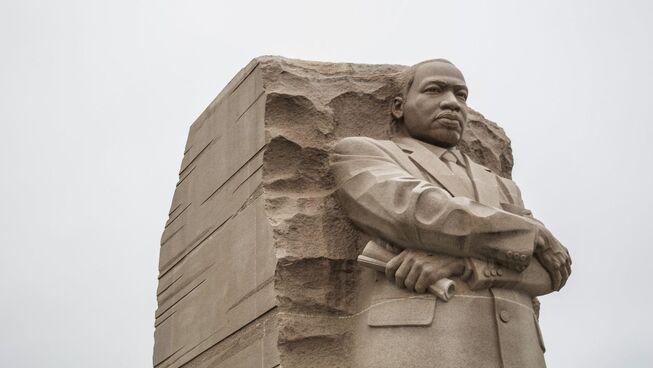The Drover's Wife: The Legend of Molly Johnson
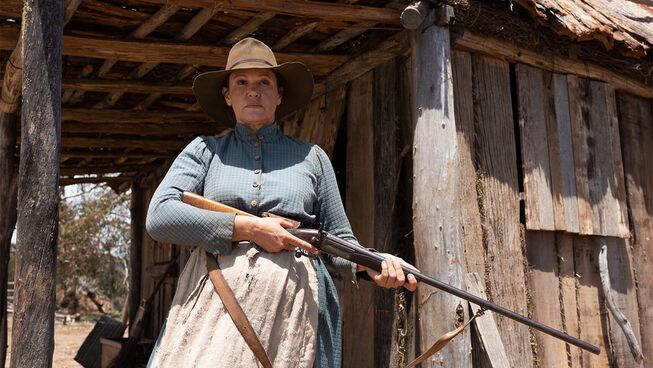
4 out of 5 stars
Molly Johnson (Leah Purcell) is an isolated and heavily-pregnant indigenous woman living in In 1893 Outback Australia. She struggles to raise her children and run the family farm in the Snowy Mountains while her husband is away for work. He makes his living for the family as a drover, a cattleman who drives cattle across the country.
As she makes their isolated home life work, Molly wrestles with the PTSD that she had developed at the hands of her drunk, physically and sexually abusive husband. While in her mental state, the wife and mother almost shoot Sergeant Nate Klintoff (Sam Reid) and Louisa (Jessica De Gouw) when they stop by on their way to the closest town. He is the newly-appointed lawman and she is his well-educated wife.
Despite this incident, Molly eventually asks the couple to deliver her young kids to a woman in town so that they can be cared for until her impending child is born. While she is on her own and going into labour, an Aboriginal prison escapee, Yadaka (Rob Collins), seeks refuge on her homestead and turns her life upside-down.
The tragic stillbirth of her baby and Molly’s subsequent lack of effect are other symptoms of her mental struggle. Her stoicism makes this all more evident when Yadaka discovers that this was not her first still-born child. After he connects with her with his own personal, racial persecution story, the pair develop a bond due to their mutual ability to endure white injustice.
As writer/director/co-producer and the lead actress, Leah Purcell is outstanding in these roles and carries the film as the central character. One element that might cause viewers to wrestle with this storytelling is mental imagery. It may be hard to determine whether what her character sees is a figment of her imagination or something far more sinister. Rob Collins is equally impressive as the wrongfully-convicted prison escapee on the lam. Interestingly, he is by far the least dangerous person that Molly encounters.
As a writer, Purcell changes Lawson's tale that contains underlying themes of racism, frontier savagery, and gender barbarity. Her editorial choices in his narrative show that Indigenous people are not lazy, devious, or untrustworthy. Instead, they are shown as wise and noble in her account.
The film reimagines Leah Purcell’s acclaimed play and Henry Lawson’s classic short story. This historical tale is more than a straightforward Australian western thriller that asks, ‘How far will a mother go to protect her kids?’ Purcell ingeniously raises the topic of undiagnosed PTSD as a result of abuse when it was not even an identifiable mental health condition.
Reel Dialogue: Why do we have to suffer?
Through the various difficulties in Molly Johnson’s life, many may wonder why anyone would have to endure these tragic aspects of life.
It might be a surprise to many, but Christianity is the only worldview which has an actual answer to the problem of evil and suffering. Christians can attest that they serve a God who lived as a man on this earth and experienced temptation, torture, hunger, thirst, hatred and death. Due to the work of Jesus on the cross, the justice of God is manifested in his son. The cross is a means of symbolising how much God cares about humanity's suffering. A more profound conclusion is that we may never know the specific reason for our suffering, but we can identify the God who understands the rationale behind the pain.
“If only there were someone to arbitrate between us, to lay his hand upon us both, someone to remove God’s rod from me, so that his terror would frighten me no more. Then I would speak up without fear of him, but as it now stands with me, I cannot” - Job 9:33



